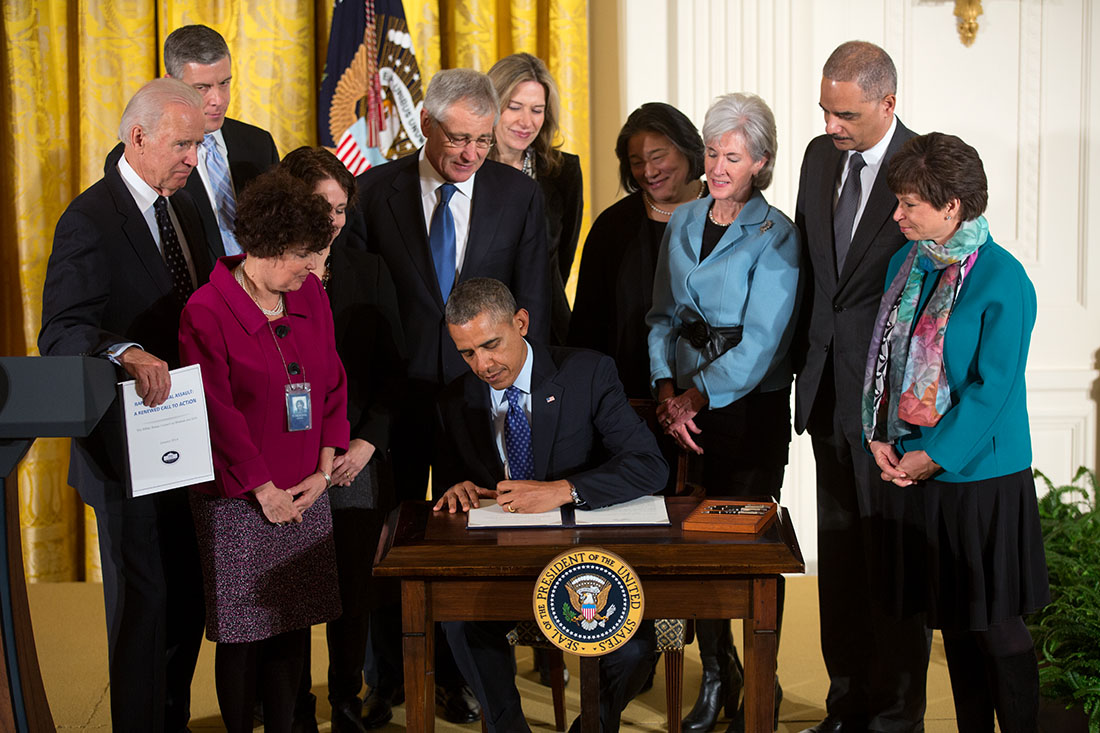Views expressed in opinion columns are the author’s own.
Education Secretary Betsy DeVos has made waves with her “rollback” of Obama-era Title IX guidelines. Victims, advocates and university officials across America are up in arms following DeVos’ George Mason University address, in which she detailed her plans to “continue to enforce [Title IX]” as well as her view of its shortcomings. Her criticisms of the guidance concerned many — particularly students and faculty at colleges and universities.
At first glance, her remarks seem like an obvious rebuke to the progressive stance the Obama administration took on campus sexual assault prevention; however, her speech isn’t yet cause for concern, and may even improve the handling of sexual assault and misconduct cases on campuses.
In 2011, the Obama administration released a “Dear Colleague” letter, which provided guidelines for how universities ought to handle sexual assault cases. This type of letter isn’t binding because it never underwent the public comment process federal agencies must complete to create binding legislative rules — which DeVos noted in her speech. However, colleges and universities were threatened with the loss of federal funding if they didn’t comply, which made the guidelines compelling.
In her statement, DeVos said “the failed system imposed policy by political letter,” instead of “inviting everyone to the table.” This metaphorical table is the public comment period that the Obama administration skipped, and that is integral to federal agencies’ good guidance practice guidelines. By verbally dismissing the guidance contained in the “Dear Colleague” letter, DeVos isn’t changing any laws regarding Title IX — primarily because those guidelines aren’t codified to begin with and can be easily retracted by the succeeding administration.
The Obama administration’s policy embraced the preponderance of evidence standard — as opposed to the beyond reasonable doubt standard — which makes a campus sexual assault proceeding similar to a civil trial by reducing the burden of proof. This, along with allegations of due process violations for those accused of sexual assault, have been the core of dissent against the Obama guidelines. DeVos is one of those dissenting voices, but that doesn’t mean Title IX and sexual assault victims have to fall by the wayside. In actuality, DeVos has opened a new door for change in the way campus sexual assault is managed.
Instead of continuing to “rule by letter,” DeVos has done something rare: She’s shown a desire to follow the process through all its lengthy parts and presented the public with the opportunity to be a part of that process. We can’t know yet what will happen to the handling of sexual assault after the period of public comment (which likely won’t be for several months to a year), but DeVos’ remarks don’t mean much in the immediate term, and certainly don’t mean sexual violence is being swept under the rug.
What happens next depends heavily on the public comment period that DeVos has just opened — after that period ends, DeVos could create legislative rules that are binding in a way that Obama’s “Dear Colleague” letter wasn’t. These rules could very well be in the favor of victims of sexual assault and others concerned with how sexual violence is handled on college campuses. We won’t know until then, so speak up about your thoughts on sexual assault on college campuses. Join the discussion about the funding of Title IX offices, and think about the evidentiary standards you want to see on your campus.
If the administration and DeVos choose to create legislative rules on par with — or perhaps even more progressive than — Obama’s, the end result will be much better. Rather than loose, nominal guidelines, universities could be met with binding rules, a fact that would only serve to elevate sexual assault as a serious issue deserving the respect of serious policy.
Caitlin McCann is a sophomore communication major. She can be reached at caitlinmccann32@gmail.com.



